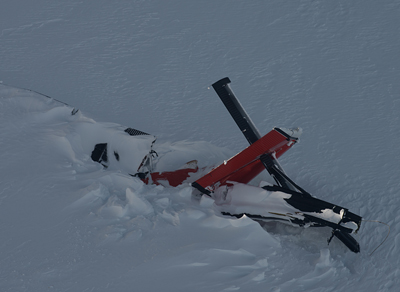Jurisdictional quicksand and the perils of human endeavours in Antarctica may combine to make recovery of the bodies of three Canadians from the wreckage of their Twin Otter impossible.
Pilot Bob Heath, of Inuvik, his co-pilot Mike Denton, of Calgary, and engineer Perry Andersen, of Collingwood, ON are presumed to have died when the Twin Otter they were in hit Mt. Elizabeth, one of the continent’s highest mountains.
As the short summer ended in Antarctica, it was deemed too dangerous to try to recover the bodies. The task was put off until the beginning of the Antarctic summer in October but now there are questions about who is able, or willing, to launch the mission.
The accident happened in the area of Antarctica administered by New Zealand and it launched the original rescue mission but New Zealand has declined to do the recovery because its policy is to only respond to emergencies.
The U.S. mission to Antarctica is hamstrung by the partial government shutdown and Canada has no significant military or search and rescue presence there.
“It’s almost a bit like if it happened in outer space, that there’s no clear lines of authority as to who has responsibility for what,” Judge Neil MacLean, the chief coroner of New Zealand told the Canadian Press. MacLean has already completed his inquest and ruled the men must have died in the crash.
Canada’s Transportation Safety Board has ruled out sending an investigation team to the site.
There has also been six months of the fiercest winter weather on the planet and it’s not known if any of the wreckage is still exposed.
“Sometimes, just the hard reality is that you know people are there but you can’t get at them,” MacLean said.

